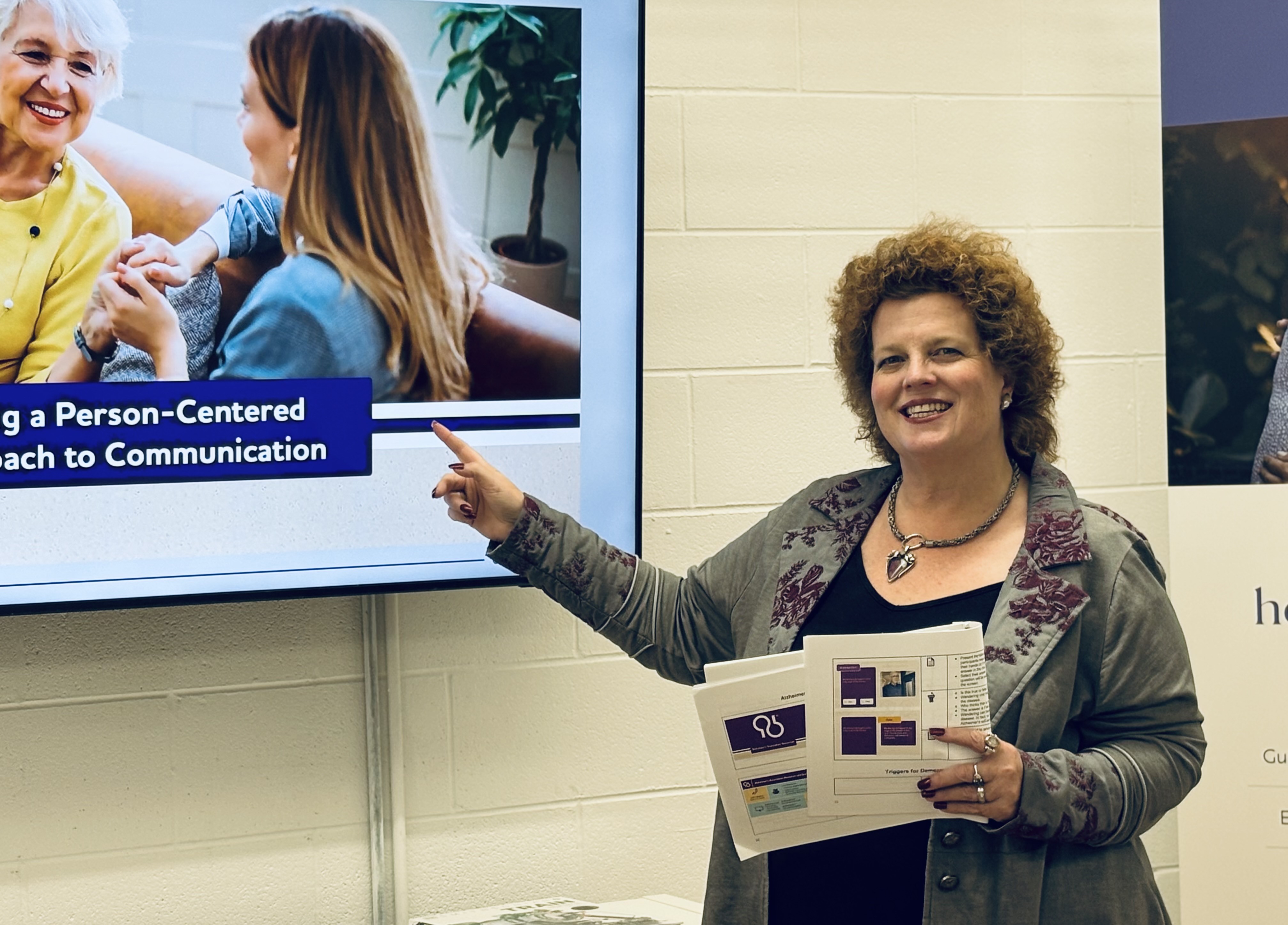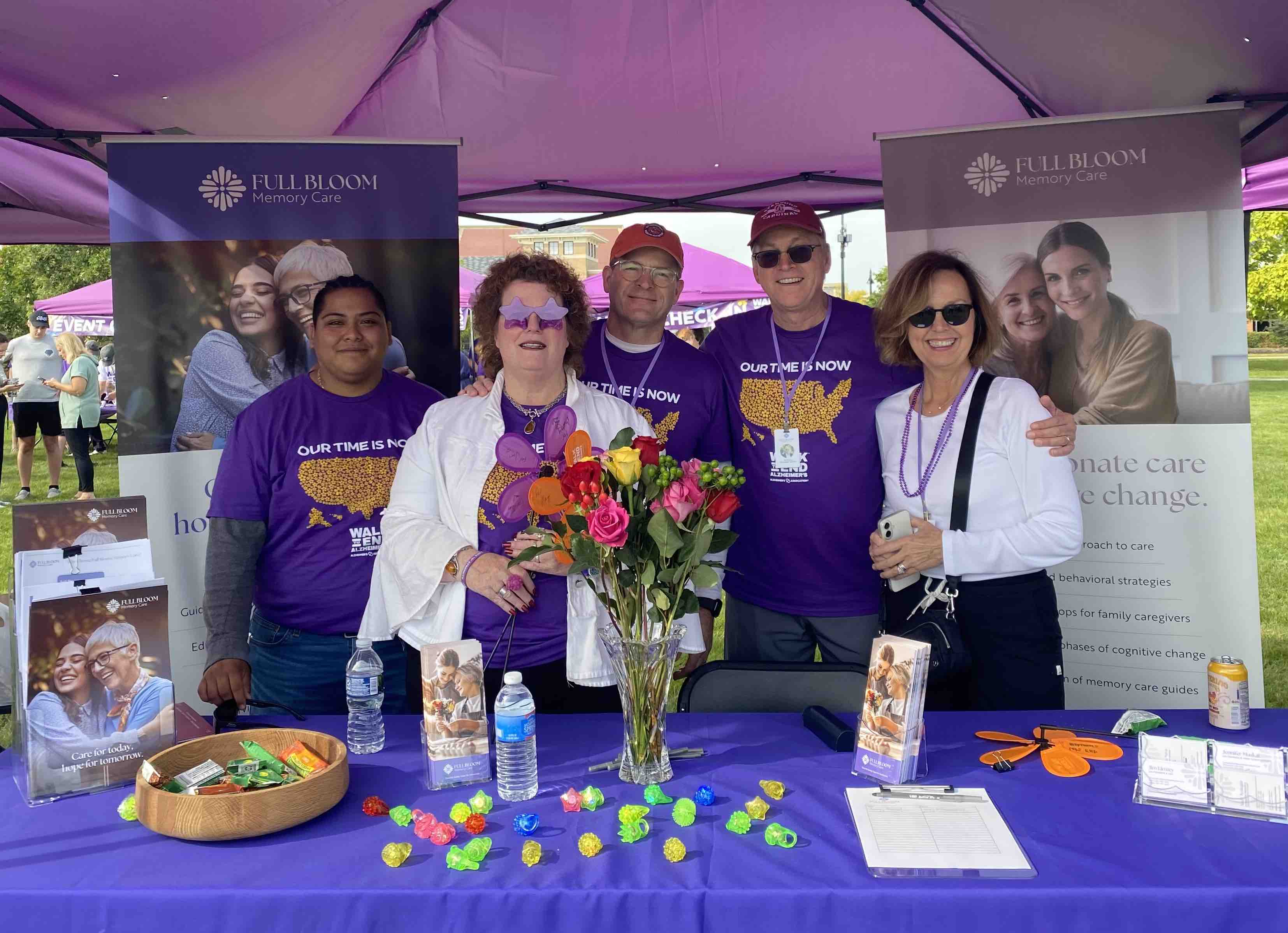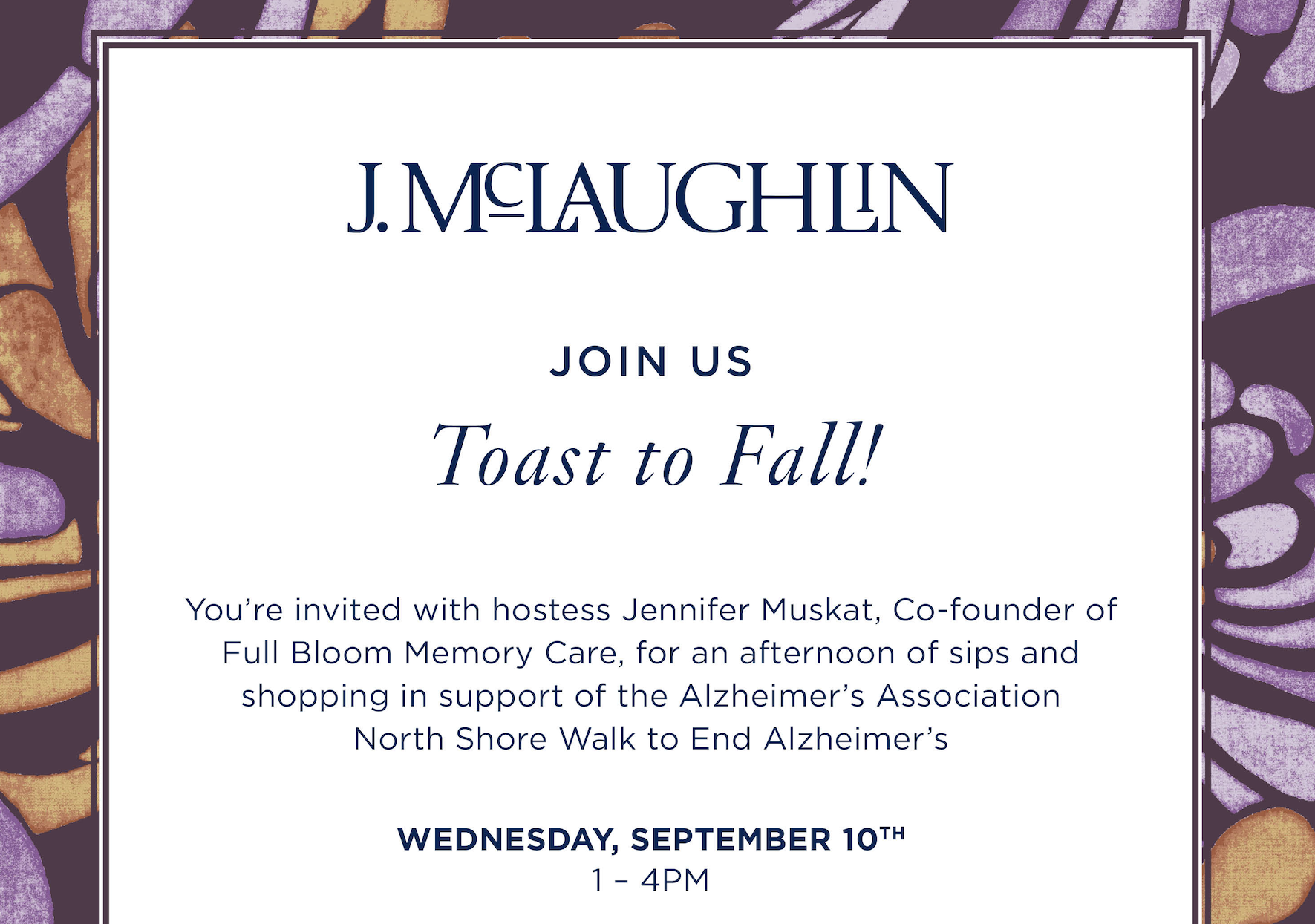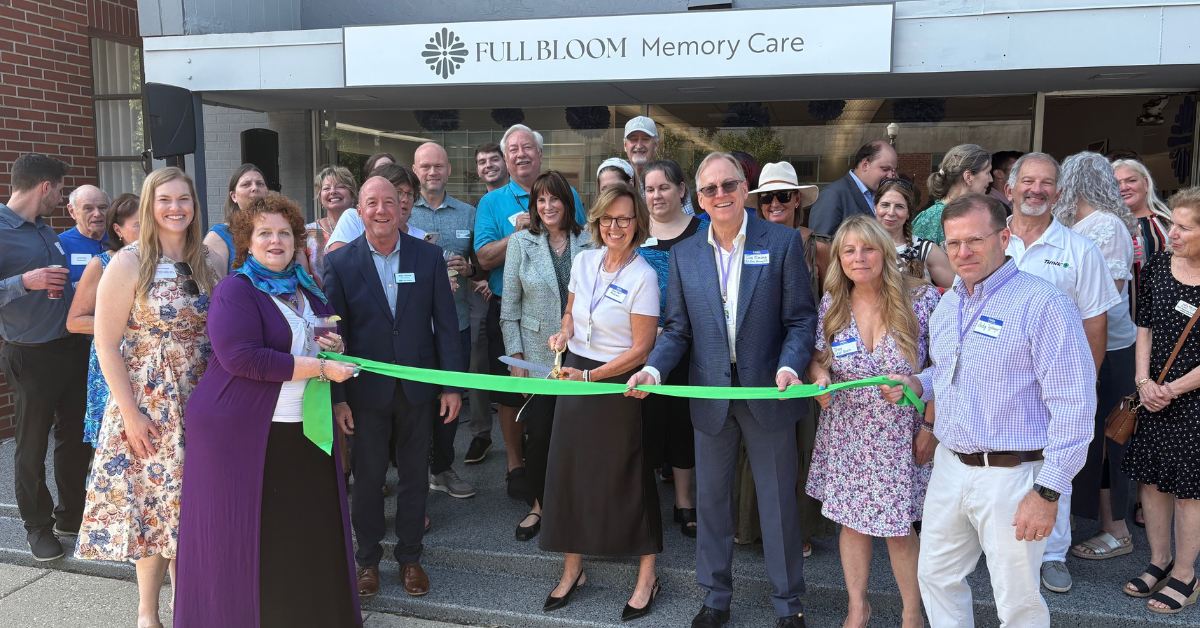Optimizing Care
Through Education
Grow your knowledge.

Nearly one in ten U.S. adults over the age of 65 are living with a neurocognitive disorder, according to a study conducted by Columbia University researchers in 2022. But what exactly is dementia?
The Alzheimer’s Association defines dementia as “a general term for loss of memory, language, problem-solving, and other thinking abilities that are severe enough to interfere with daily life.” It’s not a single disease; it can manifest in various forms, with four below being the most prevalent. By understanding and addressing the unique symptoms and progression of each form, we can significantly improve care and personalize our approach for your loved one.
UPCOMING EVENTS
Explore our upcoming events below—
and join our Full Bloom community.


Full Bloom Memory Care® is proud to serve as a community resource and education center for families, caregivers, and professionals seeking expert support in dementia care. Located in the heart of Lake Forest, our office regularly hosts public events, including Alzheimer’s Association educational workshops, caregiver training sessions, and memory care seminars.
Our goal is to provide trusted information, compassionate guidance, and a welcoming space where families and professionals touched by Alzheimer’s and other forms of dementia can connect, learn, and find support. These events are open to the public and designed to empower families and caregivers, promote early awareness, and improve quality of life for those living with memory loss.
Alzheimer’s Disease
Alzheimer’s Disease causes approximately 80–90% of dementia cases. It occurs when brain cells and their connections begin to degrade and deteriorate.
Symptoms include:
- Language difficulties
- Memory loss
- Increased confusion
- Disorientation
- Mood swings
- Decreased motivation
These symptoms intensify over time, with each stage requiring increasingly comprehensive care. The typical progression spans eight to ten years, although this varies from person to person.
Care strategies:
- Memory aids (sticky notes, digital reminders, daily routines)
- A safe, supportive living environment
- Regular social interactions

Vascular Dementia
Vascular dementia accounts for 10-20% of neurocognitive disorders and follows a distinctive progression that is often triggered by one or more strokes.
Symptoms include:
- Problem-solving challenges
- Slowed thinking
- Difficulty concentrating
- Mood fluctuations
These symptoms may stabilize and then worsen.
Care strategies:
- Preventing further cerebrovascular damage through a heart-healthy diet, regular exercise, and adherence to medical treatments
- Cognitive exercises
- A structured daily routine

Frontotemporal Dementia
Frontotemporal Dementia is caused by nerve cell loss in the brain’s frontal or temporal lobes. Symptoms can begin to surface between ages 45 and 65 and tend to progress more rapidly than other types of neurocognitive disorders.
Symptoms include:
- Changes in behavior and personality
- Emotional detachment
- Language difficulties
Care strategies:
- Consistent and structured behavioral management techniques
- Communication aids like picture boards or specialized apps

PAST EVENTS
Take a look at what we've covered—insightful topics,
expert guidance, and meaningful moments.




Toast to Fall! A Fundraiser for the North Shore's Walk to End Alzheimer's


Building Foundations of Caregiving and Supporting Independence


Join us to connect, learn, and feel supported on this journey of care and understanding.
Reach out to learn more about our upcoming events, workshops, and gatherings created with caregivers like you in mind.
